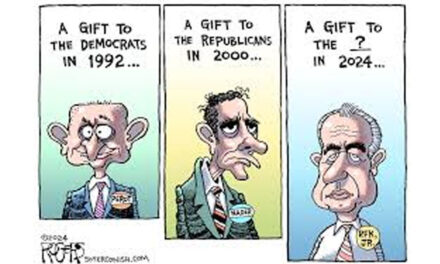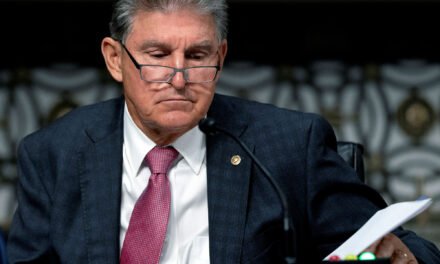
GOP Pushing the Final 2018 Spending Bill this Week
Republicans are hoping to unveiled the details of the massive $1.3 trillion spending bill early this week and then are aiming to pass it in the Congress by midnight Friday.
Lawmakers are hoping to come up with a compromise that Democrats and Republicans both approve of tonight to finally pass the spending bill.
“Congress aims to pass its $1.3 trillion spending plan by midnight Friday or risk seeing the government’s spending authority lapse for the third time this year. But snags in the negotiations, rules in both the House and Senate, and a snowstorm expected to hit Washington on Wednesday all complicate the voting timeline,” writes CNBC.
But leading lawmakers are optimistic that the bill will pass by the end of the week.
“There’s some unresolved issues, we’re working through them, and we’re hoping to post today,” said Paul Ryan, House Speaker on Tuesday.
“We’re going to do it this week. As long as it takes, that’s the time we’ll put in to get there,” said Mitch McCommell, Senate Majority Leader.
Ryan also said that lawmakers are not talking about a stopgap funding bill that would keep the government open and give the negotiations more time.
Lawmakers are trying to find a compromise over the health-care policy, immigration and massive New York rail tunnel project.
President Donald Trump had already agreed to the budget bill, which includes a $80 billion boost to defense spending and a $86 billion boost to domestic spending.
GOP lawmakers were making a push to introduce legislation addressing the Affordable Care Act in the bill.
“Sens. Lamar Alexander (R., Tenn.) and Susan Collins (R., Maine) had hoped to include a plan from Mr. Alexander and Sen. Patty Murray (D., Wash.) to restore payments to insurers that offset their costs for providing mandatory subsidies to some low-income consumers on the ACA. Mr. Trump ended those payments last year, and many insurers raised premiums as a result. That meant people who don’t get federal assistance to help with premiums saw their costs rise,” writes the Wall Street Journal. “The health-care package also would have provided money to states for reinsurance, which help cover high-cost insurer claims as a way to reduce overall premiums. And it would have given states greater flexibility with waivers on how they implement the ACA. Its omission would deal a major blow to insurers and could further imperil the ailing health law’s markets.”
But this is a point of contention for Democrats and Republicans because the GOP only wants the subsidies to go to insurers not covering abortions. Federal funding is already barred from being used for these procedures.
“I’m not going to do anything that appears to further retreat from our commitment to choice,” said Sen. Chris Murphy (D., Conn.) about the policy.
This issue and a few other points of contention between the two parties probably won’t make it in the final legislation so the bill can get passed.
“Plenty of variables are still at play, such as disagreements over whether to use the bill to shore up Obamacare markets and whether to fund a $900 million rail tunnel project connecting New Jersey and New York City. Funding for increased border enforcement, protections for hundreds of thousands of young undocumented immigrants and President Donald Trump’s proposed border wall are also points of contention,” writes CNBC.
But it looks like Democrats agree that an agreement is in the near future though, especially if some of the areas of dispute are left out.
“It has some things no one likes and it has some things not everybody likes, but most people like,” said Chuck Schumer, the Democratic Senate Minority Leader on Tuesday. “It was a fair compromise.”
The fiscal year for 2018 began back in October and since then five stopgap measures were put in place to keep the government open. Fortunately, lawmakers are especially motivated this week to get this bill signed.



























Why is that Archie? During the summer of Floyd, over 90% of all protests were peaceful. Of the less than…
Leftist would not have been charged
Frank wants democrats to be sexual predators and not have to answer for it. You would want the record erased…
Mr. Horist, obviously you missed Tom's and my independently generated comments regarding your frequent use of "MOST" as your source.…
Harold, I don't think you will find many "leftists" in that crowd except the ones you hallucinate. Check the court…